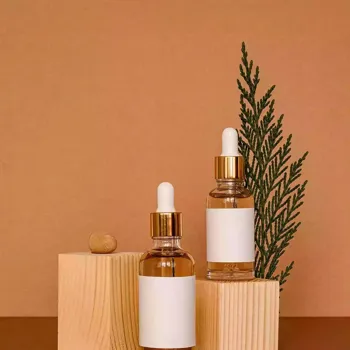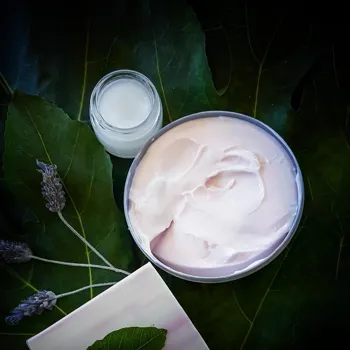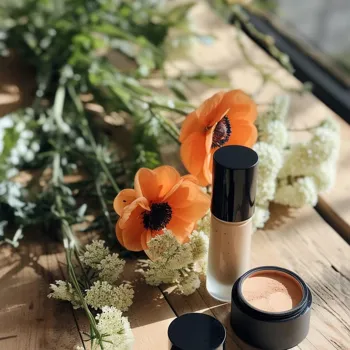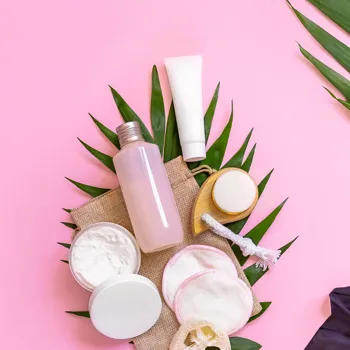Navigating Beauty Products for Sensitive Skin: A Guide to Healthy, Glowing Skin. Decode the skincare world to pamper your skin!
Dealing with sensitive skin can be a real siyappa, isn’t it? One minute your
skin is fine, the next it’s red, itchy, and irritated. Finding the right beauty products feels like navigating a minefield. But tension nahi lene ka!
We're here to guide you through, decoding the world of skincare so that you can achieve that glowing, healthy skin without the drama. The key is to be super selective with what you put on your face and body.
Understanding your skin type is the pehla step and identifying ingredients that are gentle and effective is very important. Many feel the need to try out new beauty trends, but a sensitive skin needs to be addressed carefully with a proper understanding of its needs.
Choosing sensitive skin products: avoid fragrances, sulfates, parabens. Opt for soothing ingredients
Choosing products becomes easier when you know which ingredients play well with sensitive skin. Look for products that are fragrance-free, because artificial fragrances are a common trigger for irritation.

Also, steer clear of harsh chemicals like sulfates (often found in cleansers) and parabens (used as preservatives). Instead, scout for soothing ingredients like aloe vera, chamomile, and calendula. These have anti-inflammatory properties that can calm down irritated skin.
Ingredients like ceramides and hyaluronic acid are your friends too. Ceramides help to fortify your skin barrier, which is often compromised in sensitive skin, while hyaluronic acid is a master hydrator, drawing moisture into the skin.
Choose gentle cleansers, alcohol-free toners, and targeted serums wisely
Now, let's talk about specific products. For cleansers, opt for gentle, soap-free formulas. Cream cleansers or those with a milky texture are usually a good bet. Avoid anything that foams excessively because that usually means it contains harsh surfactants.

Toners, if you choose to use them, should be alcohol-free. Alcohol can dry out your skin and make it more vulnerable to irritation. Serums are a great way to deliver targeted ingredients, but again, choose wisely.
A serum with niacinamide (a form of vitamin B3) can help to reduce redness and inflammation, while a calming serum with antioxidants can protect your skin from environmental damage. Remember to always do a patch test before incorporating any new product into your routine.
Apply a small amount to your inner arm or behind your ear and wait 24-48 hours to see if any irritation occurs.
Moisturize well, use sunscreens for sensitive skin care
Moisturization is absolutely crucial for sensitive skin. A well-hydrated skin barrier is a strong skin barrier, and that means less sensitivity. Look for moisturizers that are rich in emollients and humectants.

Emollients, like shea butter and squalane, help to soften and smooth the skin, while humectants, like glycerin and hyaluronic acid, draw moisture from the air into your skin.
Avoid heavy creams that contain occlusive ingredients like mineral oil or petrolatum if you are prone to acne, as these can clog pores. Sunscreen is non-negotiable, boss! Even on cloudy days, your skin is exposed to harmful UV rays.
Mineral sunscreens containing zinc oxide or titanium dioxide are generally better tolerated by sensitive skin than chemical sunscreens. Chemical sunscreens absorb UV rays, while mineral sunscreens reflect them.
Choose hypoallergenic makeup for sensitive skin, remove gently
Makeup can also be a source of irritation for sensitive skin. Look for makeup products that are labeled "hypoallergenic" and "non-comedogenic" (meaning they won't clog pores).

Mineral makeup is a great option because it's generally free of irritating ingredients like dyes, fragrances, and preservatives. Always remove your makeup thoroughly at the end of the day with a gentle cleanser or makeup remover wipes specifically designed for sensitive skin.
Avoid rubbing your skin too harshly, as this can cause irritation. Consider using micellar water for cleansing. These days markets provide a vast range of products. One needs to be careful with the choices.
Navigate beauty for sensitive skin with care for glowing results. Consistency matters
So, there you have it! Navigating the world of beauty products for sensitive skin doesn't have to be a headache.
By understanding your skin's needs, choosing the right ingredients, and being mindful of potential irritants, you can create a skincare routine that leaves your skin happy, healthy, and glowing. Always remember, consistency is key. Stick to a simple routine and be patient.
It may take some time to find the products that work best for you, but the effort is worth it. And don't hesitate to consult a dermatologist if you have any concerns or persistent skin issues. They can help you identify specific triggers and recommend a personalized treatment plan.
Choosing gentle beauty products for sensitive skin is key
Finding the right beauty products when you have sensitive skin can feel like a never-ending quest. Arre yaar, one cream makes your skin glow, another makes it itch like crazy. But don't worry, hum hai na! Let’s break down how to choose beauty products that will love your skin, not irritate it.
Understanding your sensitive skin type is crucial to a good skin routine. Your skin is a mirror! It tells you what it needs. The first step is really knowing what exactly triggers your skin. Maybe it is harsh fragrances, or certain chemicals.
When you figure this out, you have a better understanding on making your choices. One rule is, less is more.
Key ingredients for sensitive skin: fragrance-free, aloe vera, chamomile, green tea, hyaluronic acid, ceramides
Ingredients are key! Certain ingredients are lifesavers for sensitive skin. Look for the words "fragrance-free" on labels like your life depends on it. Artificial fragrances are a major cause of irritation. Also, run far, far away from products with alcohol, sulfates, and parabens.

What should you look for? Aloe vera is your skin's best friend. Chamomile and green tea extract also have amazing calming properties. Hyaluronic acid, also very beneficial, it hydrates the skin and keeps in the moisture. Ceramides are like the bricklayers of your skin barrier!
They help keep everything strong and protected. So, when scanning ingredients, make sure there are no harmful chemicals and harmful ingredients
Product types: gentle cleansers, alcohol-free toners, beneficial serums, patch test before using
Let's talk product types. For cleansers, gentle is the name of the game. Forget anything harsh or foamy, those will strip your skin dry. Try cream cleansers or cleansing oils – something that glides on and feels soothing. Toners? If you use them, make sure they are alcohol-free.
Alcohol dries you out, which is the last thing sensitive skin needs. Serums, wah wah wah. Some have incredible benefits. Niacinamide is fantastic for reducing redness and calming inflammation. Antioxidant serums protect your skin from pollution and environmental stress.
When trying new products, remember to do the patch test zaroor. Put a tiny amount on a non-visible area and wait to see if any allergies occur.
Moisturize with emollients, humectants, use sunscreen daily
Moisturizer is paramount, bhidu. You need to keep your skin hydrated and happy. Look for rich creams that include emollients and humectants. Shea butter and squalane are amazing emollients, they soften and smoothen your skin.

Glycerin and hyaluronic acid are humectants – they pull moisture from the air and into your skin! If you are prone to breakouts, avoid very thick creams containing mineral oil. Now, sunscreen!!! Every single day, okay? Even when it is cloudy out, sneaky UV rays are attacking your skin.
Mineral sunscreens made with zinc oxide or titanium dioxide are usually best for sensitive skin. They are gentle and effective.
Choose hypoallergenic makeup for sensitive skin, remove before bed
Makeup also requires some thought. Look for products labeled "hypoallergenic" and "non-comedogenic." Mineral makeup is often a great choice because it usually avoids dyes, fragrances, and preservatives that can cause reactions. And listen up, always remove your makeup before bed.
Use a gentle makeup remover or micellar water. Try not to scrub or rub too hard. It causes irritation. Markets provide an extensive range of products which also overwhelms an amateur. Selecting the right product is important, especially with sensitive skin.
Guide to skincare for sensitive skin: choose wisely, be patient, consult a dermatologist
So there you have it – a guide to navigating the beauty world with sensitive skin. By knowing what to look for (and what to avoid), you can create a skincare routine that keeps your skin calm, happy, and glowing. Remember, be patient. Don’t just try everything at once.
Slowly introduce new products, and pay attention to how your skin reacts. If you have serious problems, go see a dermatologist. They are the experts and can make sure your skin gets the special treatment that it needs. Following these steps won’t be much of a draama as you will have a great skin!













